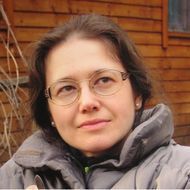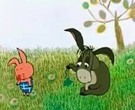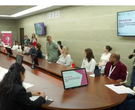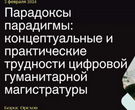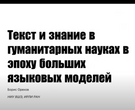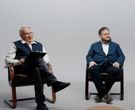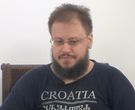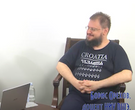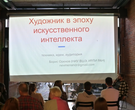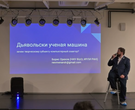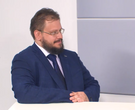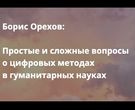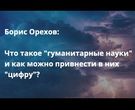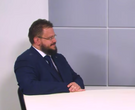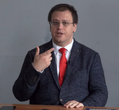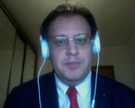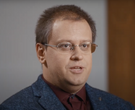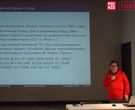- A
- A
- A
- АБB
- АБB
- АБB
- А
- А
- А
- А
- А
- Национальный исследовательский университет «Высшая школа экономики»
- Факультет гуманитарных наук
- Школа лингвистики
- Мероприятия
- Профессор Франк Фишер из Гёттингенского центра по Digital Humanities прочтёт лекцию "A Digital Take on World Literature - How we can enhance Literary Studies with the help of Computational Linguistics"
-
Школа
- О школе
- Сотрудники
- Семинары
-
Исследовательские подразделения
-
- Международная лаборатория языковой конвергенции
- Центр «Русский как иностранный»
- Центр цифровых гуманитарных исследований
- Центр языка и мозга
- Лаборатория по формальным моделям в лингвистике
- Лаборатория «Корпусные исследования»
- Лаборатория языков Кавказа
- Лаборатория учебных корпусов
- Лаборатория теоретической и полевой фольклористики
- Лаборатория социогуманитарных исследований Севера и Арктики
-
-
Проекты
-
Проекты сотрудников
-
Проекты студентов и аспирантов
-
Завершённые проекты
- Некомпозициональные конструкции в эритажном русском
- Компьютерные и лингвистические ресурсы для поддержки шугнанского языка
- Лингвоспецифическая разметка китайских текстов в Русско-китайском параллельном корпусе НКРЯ
- Цифровой архив: создание корпуса журнала "Отечественные записки"
- Создание лингвокультурологического подкаста о России для иностранцев «Yellow Blue Bus» (Я люблю вас)
- База данных русских идиом
- Компьютерные и корпусные инструменты для иранистических исследований
- Русский разговорный клуб
- Шугнанские глаголы в типологическом освещении
- Создание академического онлайн-словаря персидского языка
-
- Международное сотрудничество
- Экспедиции
- Ресурсы
- Препринты
- Наша книжная полка
-
Образовательные программы
- Бакалаврская программа «Фундаментальная и компьютерная лингвистика»
- Магистерская программа «Компьютерная лингвистика»
- Магистерская программа «Лингвистическая теория и описание языка»
- Магистерская программа «Русский как иностранный во взаимодействии языков и культур»
- Магистерская программа «Цифровые методы в гуманитарных науках»
- Аспирантская школа по филологическим наукам
Адрес: 105066, г. Москва,
Старая Басманная ул., д. 21/4
Телефон: +7 (495) 772-95-90 доб. 22734
E-mail: ling@hse.ru
Редакторы сайта — Наталья Борисовна Пименова, Максим Олегович Бажуков, Константин Евгеньевич Сатдаров
- Международная лаборатория языковой конвергенции
- Лаборатория «Корпусные исследования»
- Лаборатория по формальным моделям в лингвистике
- Лаборатория языков Кавказа
- Лаборатория социогуманитарных исследований Севера и Арктики
- Научно-учебная лаборатория учебных корпусов
- Центр «Русский как иностранный»
- Научно-учебные группы
- Каталог проектов по компьютерной лингвистике
- Проекты, поддерживаемые грантами
- Русский язык для всех
- Лингвистический кружок для школьников
- Лингвистика в Центре открытого образования
Школа лингвистики была образована в декабре 2014 года. Сотрудники школы преподают на образовательных программах по теоретической и компьютерной лингвистике в бакалавриате и магистратуре. Лингвистика, которой занимаются в школе, — это не только знание иностранных языков, но прежде всего наука о языке и о способах его моделирования. Научные группы школы занимаются исследованиями в области типологии, социолингвистики и ареальной лингвистики, корпусной лингвистики и лексикографии, древних языков и истории языка. Кроме того, в школе создаются лингвистические технологии и ресурсы: корпуса, обучающие тренажеры, словари и тезаурусы, технологии для электронного представления текстов культурного наследия.
Linguistica Uralica. 2025. Vol. 61. No. 2. P. 106-130.
Марченко И. А., Ронько Р. В.
В кн.: Исследования по славянской диалектологии. Выпуск 25. Т. 25. М.: Институт славяноведения РАН, 2025. Гл. 5. С. 236-260.
arxiv.org. Computer Science. Cornell University, 2024

Профессор Франк Фишер из Гёттингенского центра по Digital Humanities прочтёт лекцию "A Digital Take on World Literature - How we can enhance Literary Studies with the help of Computational Linguistics"
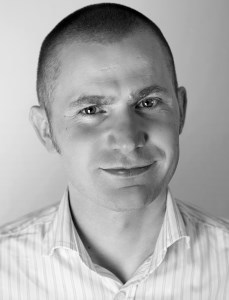 Dr. Frank Fischer (Göttingen Centre for Digital Humanities): "A Digital Take on World Literature - How we can enhance Literary Studies with the help of Computational Linguistics"
Dr. Frank Fischer (Göttingen Centre for Digital Humanities): "A Digital Take on World Literature - How we can enhance Literary Studies with the help of Computational Linguistics"If it comes to the vast and diverse corpus of world literature, the lone scholar is soon confronted with the limits of traditional research. It is no secret anymore that by help of advanced digital methods we can process a much larger amount of literary texts than usual (an amount that is rather measured in gigabytes than in pages). In doing so, we can analyse aspects of literary history that couldn't be investigated before. In this 45-minute lecture I will introduce three innovative takes on world literature, all recently developed in cooperation with fellow colleagues. The first one revolves around the use of network analysis for large corpora of dramatic texts; it will show how we can find patterns of modernisation with the help of network theory. The second one focuses on the extraction of temporal expressions from large corpora of novels in order to build a "calendar of world literature". The third one will deal with the representation of world literature in the 15 major Wikipedia versions, based on its semanticised version, DBpedia. None of these projects are limited to a specific language or a specific national literature. As diverse as they may look at first glance, they all aim at reiterating our concepts of world literature in a digital fashion by help of a number of methods of computational linguistics and network theory.
Лекция состоится 9 апреля в 14.00.
По адресу: ул. Старая Басманная, 21/4, ауд. А-403.
- О ВЫШКЕ
- Цифры и факты
- Руководство и структура
- Устойчивое развитие в НИУ ВШЭ
- Преподаватели и сотрудники
- Корпуса и общежития
- Закупки
- Обращения граждан в НИУ ВШЭ
- Фонд целевого капитала
- Противодействие коррупции
- Сведения о доходах, расходах, об имуществе и обязательствах имущественного характера
- Сведения об образовательной организации
- Людям с ограниченными возможностями здоровья
- Единая платежная страница
- Работа в Вышке
- ОБРАЗОВАНИЕ
- Лицей
- Довузовская подготовка
- Олимпиады
- Прием в бакалавриат
- Вышка+
- Прием в магистратуру
- Аспирантура
- Дополнительное образование
- Центр развития карьеры
- Бизнес-инкубатор ВШЭ
- Образовательные партнерства
- Обратная связь и взаимодействие с получателями услуг
-
http://www.minobrnauki.gov.ru/
Министерство науки и высшего образования РФ
-
https://edu.gov.ru/
Министерство просвещения РФ
-
http://www.edu.ru
Федеральный портал «Российское образование»
-
https://elearning.hse.ru/mooc
Массовые открытые онлайн-курсы
- © НИУ ВШЭ 1993–2026 Адреса и контакты Условия использования материалов Политика конфиденциальности Карта сайта
- Редактору


